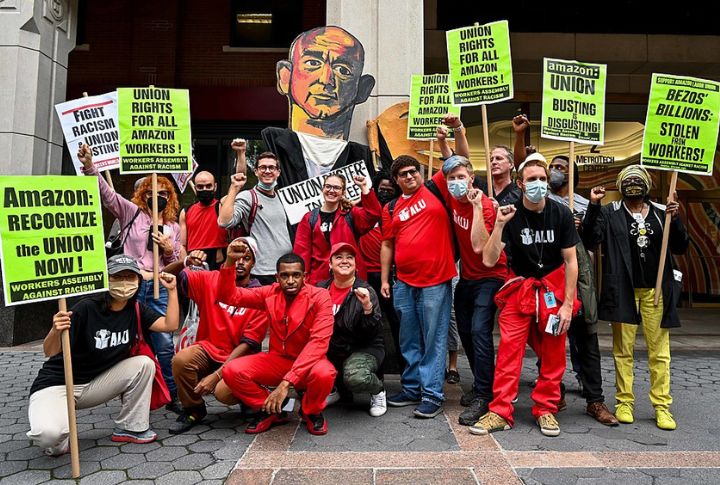
Amazon just dropped a curveball on its workforce, and it’s not the kind you can dodge by muting Slack. Thousands are suddenly faced with packing boxes or packing up careers. Curious how a relocation ultimatum turned into the hottest workplace drama? Buckle up—this story comes with plot twists.
Amazon Ultimatum For Hub Relocations

Amazon has ordered thousands of corporate employees to relocate to Seattle, Arlington, or Washington, D.C., or face resignation. The directive abruptly ends pandemic-era flexibility and solidifies office presence as the primary means of retaining roles and titles. It’s also Amazon’s first sweeping relocation mandate.
Lack Of Severance For Voluntary Exits

Employees who decline relocation are automatically marked as having voluntarily resigned, with no severance pay. This is a stark contrast with Amazon’s 2022 layoffs, when exit packages were offered. The shift appeared quietly in an HR policy update, catching many employees off guard.
Seattle, Arlington, And Washington, D.C. Are In The Spotlight

Seattle, Amazon’s original HQ, anchors over 40 office buildings downtown. Arlington’s HQ2 is in proximity to the Crystal City Metro and an underground pedestrian tunnel linking towers. Washington D.C. offices host policy and government teams. These three hubs are now the only gateways for corporate employees to continue their Amazon careers.
Strict 30-Day Acceptance And 60-Day Move Window

Affected employees were given 30 days to confirm their relocation in writing, followed by just 60 days to complete the move. Extensions are rarely approved and are reserved only for emergencies. In fact, some learned of deadlines through Friday calls, designed to convey urgency.
Private One-On-One Notifications

Instead of a company-wide email, Amazon relied on private meetings to deliver relocation news. Managers were briefed under NDA before teams were informed, fueling speculation. Internal Slack channels buzzed with rumors as employees awaited formal word, sometimes for weeks. This has also led to confusion and a sense of isolation across teams.
Emphasis On In-Person Teamwork

CEO Andy Jassy linked declining product launches to working remote-only. He argued that in-person collaboration fueled innovation. By late 2024, he mandated that corporate staff return to the office five days a week. Offices were reconfigured with writable walls and open layouts to support this shift.
AI Labs Driving The Relocation Push

Internal documents reveal the relocations are tied to staffing new AI innovation centers. Seattle is absorbing machine learning and data science teams, while Arlington hosts a hub with advanced GPU clusters. As AI tools increasingly handle routine data tasks, Amazon is also realigning its corporate real estate to centralize its most critical talent.
Strain On Midcareer Employees And Caregivers

Relocation pressures are affecting mid-career staff and caregivers the most. They have to juggle new schools and eldercare needs, while dual-career couples face conflicting demands. Amazon’s fixed relocation stipends ease costs but rarely cover the complete disruption of relocating one’s life.
Employee Pushback Via Petitions And Walkouts

Resistance is growing! A 2023 internal petition against return-to-office rules gathered nearly 30,000 signatures. Walkouts have been strategically staged around Prime Day to maximize visibility, with employees citing overwork and rising costs.
How Amazon’s Policy Stands Out In Big Tech

Unlike Meta, Google, or Microsoft, Amazon offers no remote-work fallback or severance for employees who are unwilling to relocate. This company’s rigidity is setting it apart, and possibly pushing peers to reassess their policies. However, until now, the other competitors have been sticking to relatively relaxed rules.
